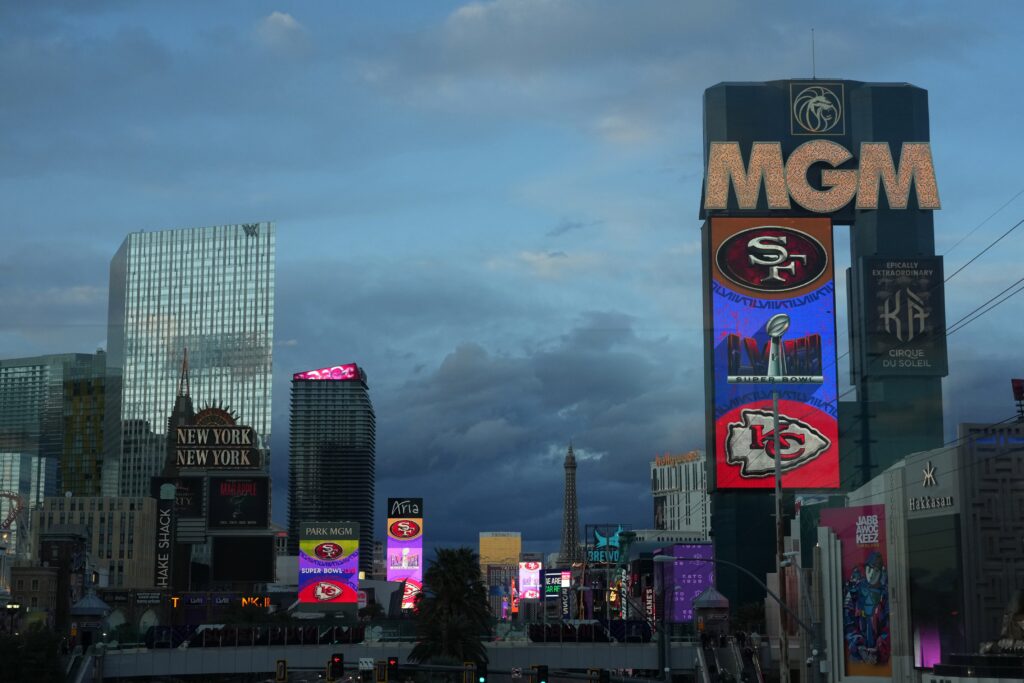In recent years, the United States has witnessed a rapid expansion in sports betting, transforming the gambling landscape and raising significant concerns about its broader impacts on society and sports integrity. The proliferation of online betting apps and changes in traditional casinos have introduced new challenges, revealing the flip side of this booming industry.
In his editorial for The New Yorker, Jay Caspian Kang highlights the erosion of sports’ intrinsic value due to the aggressive integration of betting into every facet of the game. The once tactile experience of placing bets has shifted from bustling casino sportsbooks to mobile apps’ seamless, impersonal convenience. This shift has altered how people bet, perceive, and interact with sports, making football, baseball, and basketball predictions today much more challenging.
Land-Based Casinos and Altered Odds
As online betting gains traction, land-based casinos have responded by changing their table game odds to favor the house even more. Games like blackjack, traditionally offered relatively favorable odds to players, are now being adjusted to increase the house edge. This strategy is to compensate for the competition posed by online platforms, but it ultimately diminishes the experience for casual gamblers who are less likely to win.
Despite these changes, Nevada casinos have continued to shatter revenue records. In 2023, casinos statewide collected $15.5 billion in gaming revenue, a 4.6 percent increase over 2022. The Las Vegas Strip reported a record $8.9 billion in revenue, accounting for more than 57 percent of the statewide total. This marks the third consecutive year of record-breaking revenues for Nevada casinos.
Sportsbooks and Weaker Odds
Similarly, sportsbooks have adjusted their offerings. Bets that once had decent odds and payouts are now more skewed in favor of the bookmakers. This is particularly evident with the rise of single-game parlays (S.G.P.s), which combine multiple bets to determine individual statistical outcomes. While these bets promise lottery-like payouts, they are significantly more profitable for the books. According to a study by the University of Nevada, Las Vegas, an S.G.P. can return up to thirty percent for the casino, compared to the five to six percent from traditional bets on point spreads.
Despite setting a single-year record of $481.3 million in gaming revenue, Nevada sportsbooks saw a 5.1 percent decline in total wagers, amounting to $8.3 billion. This decline is attributed to the intense competition in the sports betting market, particularly mobile sports betting, which accounted for 65.8 percent of all wagers.
The Integrity of the Game at Stake
The ubiquitous presence of betting has affected not only the financial aspects of gambling but also the very fabric of sports integrity. Recent scandals, including the involvement of high-profile athletes in betting controversies, have highlighted the vulnerabilities introduced by widespread legalization. Kang points to the case of Shohei Ohtani, whose interpreter was embroiled in a multimillion-dollar sports-betting scandal, and Jontay Porter, who was under investigation for gambling infractions related to prop bets. These incidents underscore the ease with which individual performance can be manipulated, further eroding trust in fair play.
Changing Fan Engagement
The way fans engage with sports has also shifted dramatically. Betting is now a central feature of sports broadcasts, with the major sports networks integrating betting segments and advertising heavily for betting apps. This relentless promotion not only normalizes gambling but also shifts the focus from the sport itself to the betting outcomes. For many, the thrill of watching their favorite teams and athletes compete is overshadowed by the constant reminder of potential financial gain or loss.
A Permanent Problem?
While gambling legalization was intended to bring transparency and regulation to a previously shadowy industry, it has also introduced a slew of new problems. The integration of gambling into mainstream sports and everyday life raises questions about the long-term impacts on society. The initial frenzy of legalization may eventually subside, but the structural changes and associated problems seem poised to persist.
As lawmakers and regulators navigate this new landscape, the challenge will be to mitigate these adverse effects while preserving the benefits of legalization. Whether through stricter regulation, better consumer protections, or more responsible advertising, there is a pressing need to address the negative consequences accompanying the sports betting boom in America.
The future of sports betting in the United States remains to be determined, but one thing is clear: the stakes have never been higher. As Kang aptly concludes, the integrity of the game and fans’ experience is at risk, making it imperative for all stakeholders to consider the broader implications of this rapidly evolving industry.
Mixed Signals
While the broader gambling industry in Nevada enjoys record revenues, the sportsbook sector tells a more complex story. The state’s overall gaming revenue hit $15.5 billion in 2023, driven by significant contributions from the Las Vegas Strip. Yet, despite reaching $481.3 million, sportsbook revenues face downward pressure due to increased competition and changing bettor behaviors. This dichotomy highlights the evolving nature of gambling in America, where traditional and digital platforms continue to reshape the industry’s landscape.
